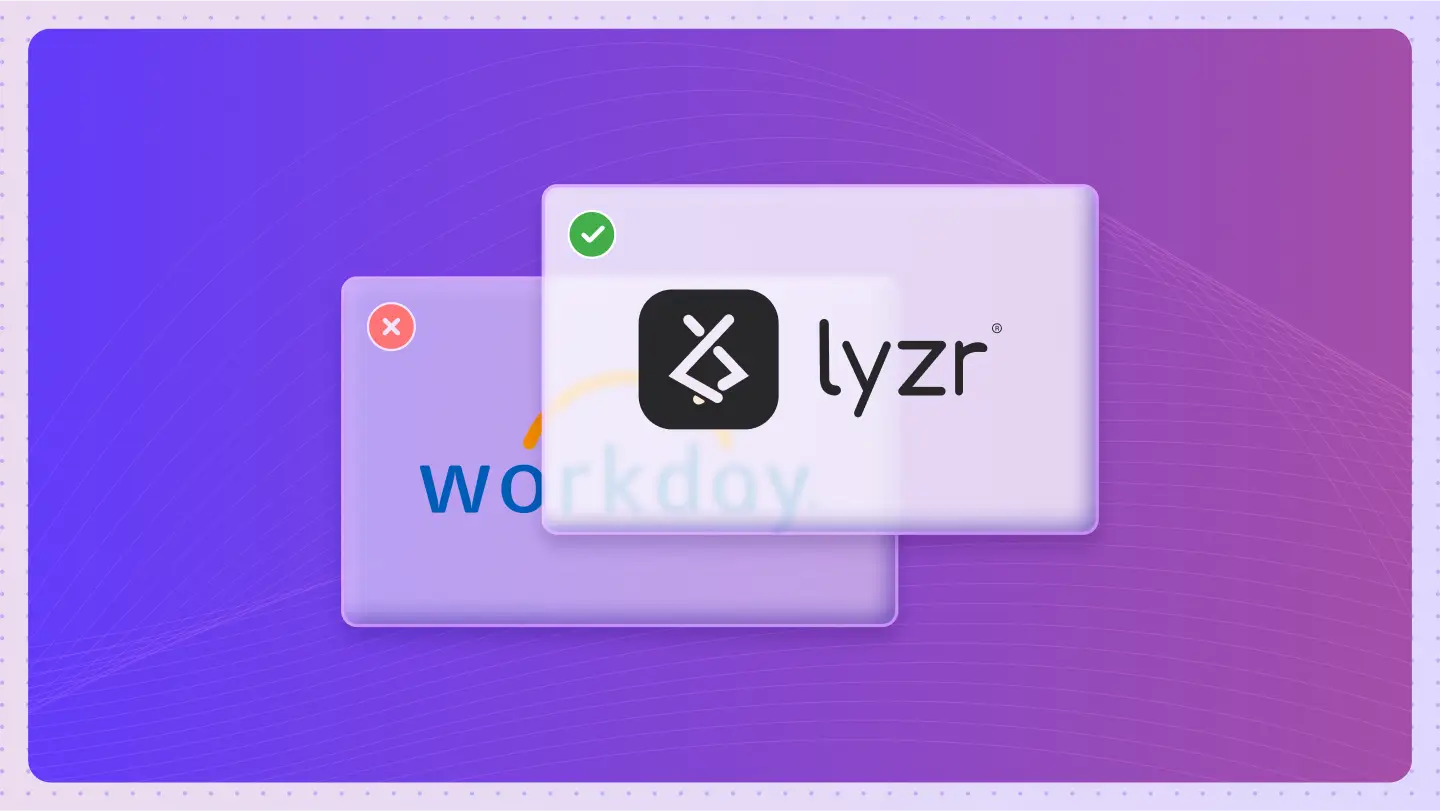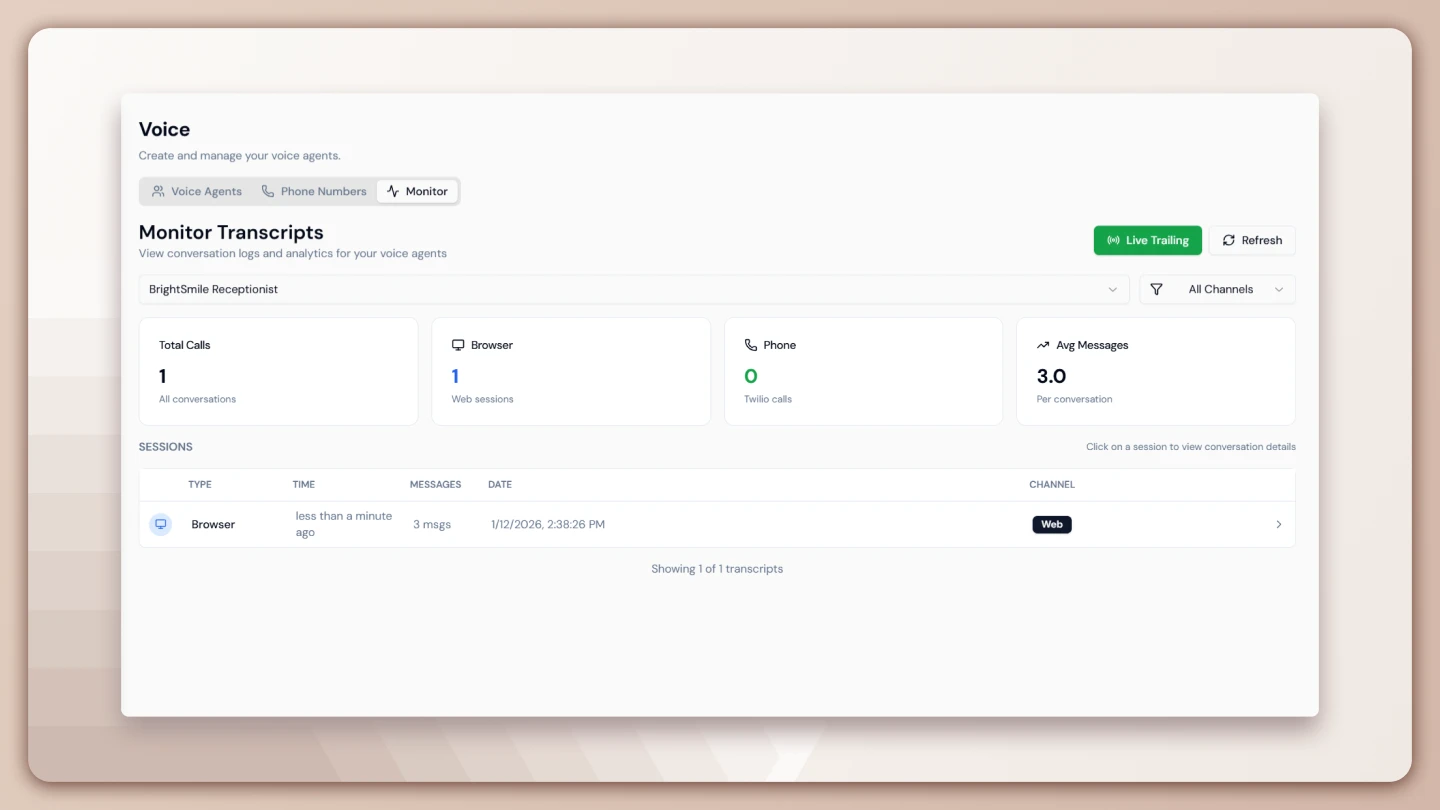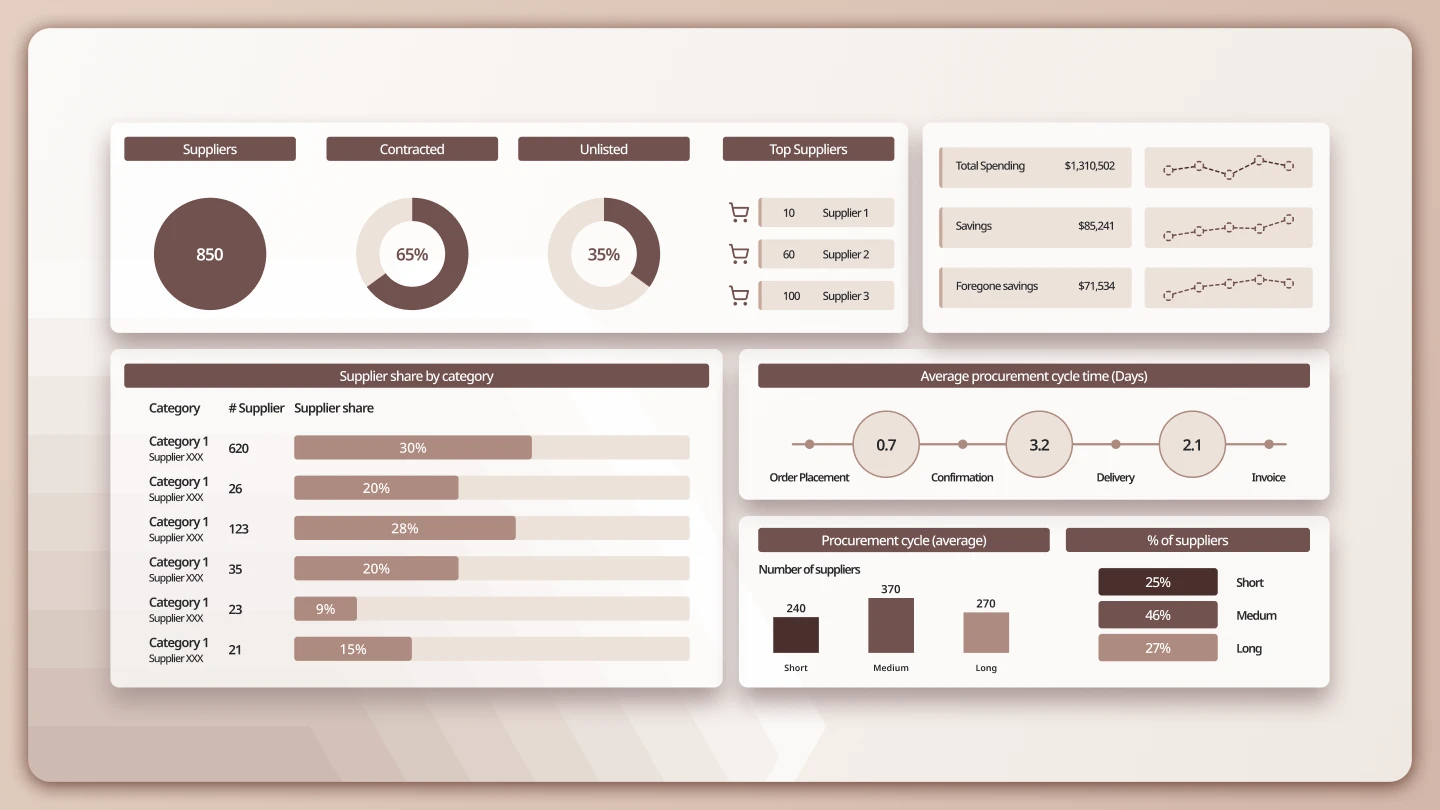What is AI Governance?
AI Governance refers to the frameworks and practices that ensure ethical AI use. It encompasses the policies and regulations that shape AI deployment, aiming to promote transparency, accountability, and compliance in AI systems.
How does AI Governance operate to ensure ethics?
AI Governance operates by establishing frameworks and guidelines that ensure ethical AI use and compliance with regulations. It encompasses the following aspects:
- Ethical Standards: Defines the principles that guide the development and deployment of AI technologies, ensuring fairness, accountability, and transparency.
- Policy Development: Involves creating policies that regulate AI applications, addressing risks associated with AI, and promoting responsible innovation.
- Compliance Monitoring: Implements systems to track adherence to policies and regulations, ensuring that organizations meet legal and ethical obligations.
- Stakeholder Engagement: Encourages collaboration among policymakers, technologists, and the public to shape AI governance that reflects societal values.
- Best Practices: Establishes guidelines for organizations to follow, such as regular audits, impact assessments, and training programs for employees.
- Risk Management: Identifies potential risks posed by AI systems and develops mitigation strategies to address them effectively.
These elements collectively contribute to a robust AI governance structure that promotes ethical AI use and fosters public trust.
Common Uses and Applications of AI Governance
AI governance is critical in various sectors to ensure ethical and responsible use of artificial intelligence. Below are some key applications:
- Regulatory Compliance: Organizations implement AI governance to adhere to local and international regulations, ensuring that AI systems are deployed in a lawful manner.
- Ethical AI Development: Companies establish governance frameworks to guide the ethical development of AI technologies, prioritizing fairness, accountability, and transparency.
- Risk Management: AI governance frameworks help in identifying and mitigating risks associated with AI model deployment, ensuring that potential biases and ethical concerns are addressed.
- Stakeholder Engagement: Effective governance involves engaging stakeholders, including consumers and civil society, to build trust and ensure AI systems meet societal expectations.
- Performance Monitoring: Organizations use governance policies to monitor AI system performance continuously, ensuring that they function as intended and do not cause unintended harm.
- Data Stewardship: AI governance frameworks often include best practices for data management, ensuring data privacy and security in AI applications.
- Training and Awareness: Ensuring that employees are well-informed about AI governance policies and their importance in ethical AI use is a key aspect of successful implementation.
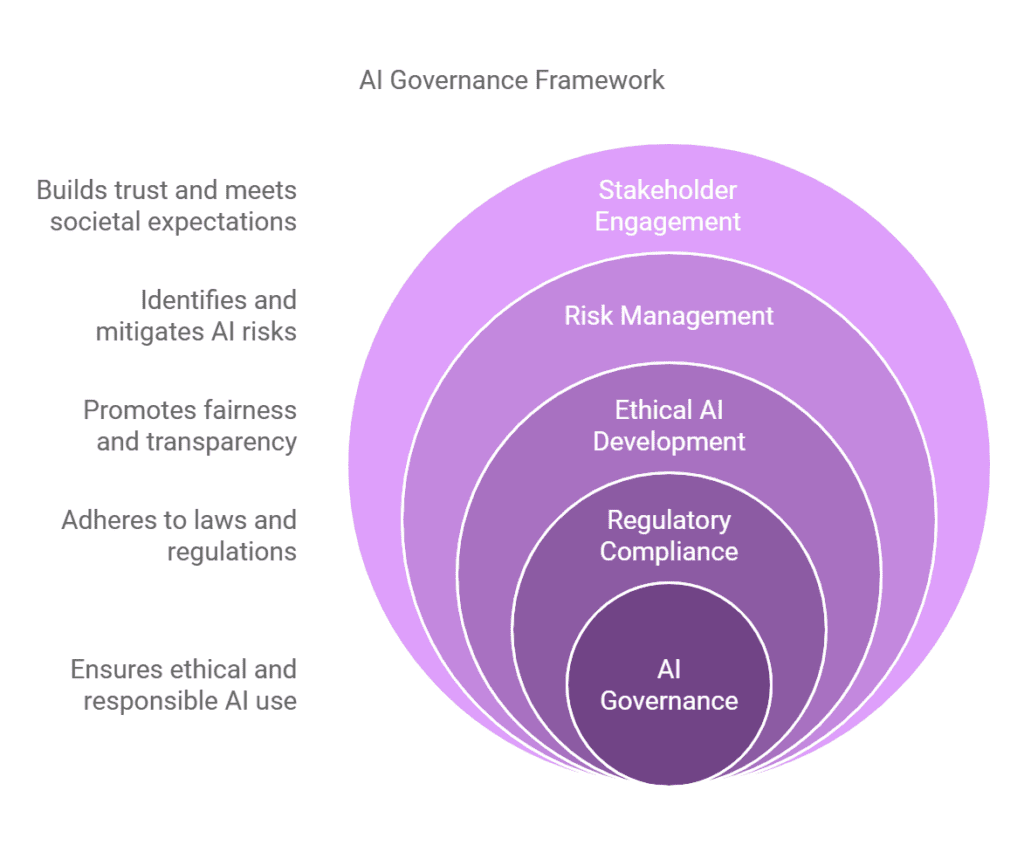
What are the advantages of AI Governance?
AI Governance is crucial for ensuring the responsible use of artificial intelligence. By implementing robust governance frameworks, organizations can reap numerous benefits, including:
- Ethical Compliance: Ensures that AI systems are developed and deployed ethically, minimizing bias and discrimination.
- Regulatory Adherence: Helps organizations navigate complex AI policies and regulations, reducing legal risks.
- Enhanced Trust: Builds stakeholder trust by demonstrating a commitment to ethical AI practices.
- Risk Mitigation: Identifies and mitigates potential risks associated with AI technologies, safeguarding the organization.
- Best Practices Implementation: Facilitates the establishment of best practices for oversight and compliance, promoting consistency across operations.
- Innovation Support: Encourages innovation while maintaining ethical standards, fostering a culture of responsible AI development.
- Long-term Sustainability: Contributes to the long-term sustainability of AI initiatives by embedding ethical considerations into business strategies.
Are There Drawbacks or Limitations Associated with AI Governance?
While AI Governance offers many benefits, it also has limitations such as potential complexity in policy formulation, challenges in keeping up with rapid technological advancements, and the need for continuous stakeholder engagement. These challenges can impact the timely deployment of AI solutions, create confusion among users, and possibly lead to compliance risks if not managed properly.
Can You Provide Real-life Examples of AI Governance in Action?
For example, the European Union is implementing AI Governance frameworks to regulate AI technologies across member states. This demonstrates the significance of creating a unified approach to ensure ethical AI use, protect citizen rights, and promote trust in AI applications.
How does AI Governance Compare to Similar Concepts or Technologies?
Compared to traditional data governance, AI Governance differs in its focus on ethical implications and accountability specific to AI technologies. While data governance addresses data quality and security, AI Governance is more effective for ensuring compliance with ethical standards and regulations that specifically pertain to AI deployment.
What are the Expected Future Trends for AI Governance?
In the future, AI Governance is expected to evolve by integrating more adaptive regulatory frameworks, increasing collaboration among international bodies, and utilizing technology to monitor compliance. These changes could lead to more robust ethical standards and improved stakeholder trust in AI systems.
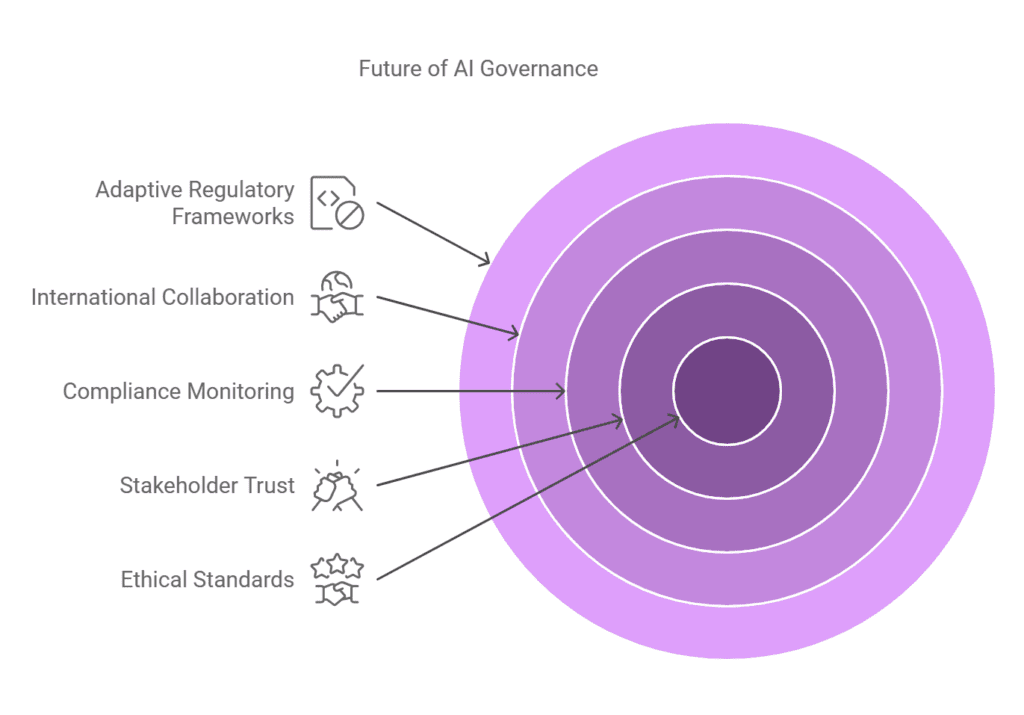
What are the Best Practices for Using AI Governance Effectively?
To use AI Governance effectively, it is recommended to:
- Establish clear policies that define ethical guidelines.
- Engage stakeholders regularly for feedback and alignment.
- Implement continuous monitoring of AI systems for compliance.
- Educate teams on the importance of ethical AI practices.
Following these guidelines ensures a structured approach to ethical AI deployment.
Are there Detailed Case Studies Demonstrating the Successful Implementation of AI Governance?
A case study involving IBM illustrates successful AI Governance implementation. IBM established an agent framework that focuses on transparency and accountability in its AI systems. As a result, they achieved a significant increase in stakeholder trust and compliance with global regulations, which led to enhanced reputation and market positioning.
What Related Terms are Important to Understand along with AI Governance?
Related terms include AI Ethics and Compliance Framework, which are crucial for understanding AI Governance because they provide the foundational principles and structures necessary for responsible AI development and deployment.
What are the Step-by-Step Instructions for Implementing AI Governance?
To ensure effective AI Governance, organizations should adopt the following best practices:
- Establish Clear Ethical Guidelines: Create a well-defined framework that outlines the ethical principles guiding AI development and deployment. This should include fairness, accountability, transparency, and respect for user privacy.
- Engage Stakeholders Regularly: Involve various stakeholders such as policymakers, technologists, legal experts, and the public in the governance process. Regular consultations ensure the AI governance framework reflects societal values and remains relevant.
- Implement Continuous Monitoring: AI systems should be continuously monitored for compliance with governance policies. This includes regular audits, system performance checks, and the identification of potential risks such as bias or unintended harm.
- Ensure Data Security and Privacy: Protecting sensitive data is crucial. Implement strong data management practices to ensure AI systems comply with data privacy regulations and maintain user trust.
- Conduct Impact Assessments: Before deploying AI systems, conduct thorough impact assessments to identify ethical concerns, potential biases, and risks. This helps organizations take preventive actions to mitigate issues.
- Provide Training and Awareness Programs: Educate employees and stakeholders about AI governance policies, ethical considerations, and compliance requirements. Training ensures everyone involved understands the importance of ethical AI practices.
- Adapt to Regulatory Changes: Stay updated on evolving AI regulations and ensure your governance frameworks are flexible enough to adapt to new legal and ethical standards. This helps avoid non-compliance and ensures continued alignment with global best practices.
- Promote Transparency: Ensure transparency in AI decision-making processes. Clearly communicate how AI models work, what data they use, and how outcomes are determined. This builds trust with users and stakeholders.
- Develop a Crisis Management Plan: In the event of AI system failures or ethical breaches, have a well-prepared plan in place for addressing the issue swiftly and transparently. This includes communication strategies and remediation steps.
- Foster a Culture of Accountability: Encourage accountability within the organization by assigning clear roles and responsibilities for AI governance. This ensures that there is ownership at every stage of AI system development and deployment.
By following these best practices, organizations can effectively govern AI technologies, ensuring ethical use and maintaining stakeholder trust.
Frequently Asked Questions
What is AI Governance?
AI Governance refers to the frameworks and policies that guide the ethical use of AI technologies.
It ensures accountability and transparency in AI systems while supporting compliance with regulations.
Why is AI Governance important?
AI Governance is crucial for ensuring that AI is used ethically and responsibly.
- It helps mitigate risks associated with biased algorithms.
- It fosters trust among users and stakeholders.
How do AI policies and regulations affect AI deployment?
AI policies and regulations shape how AI technologies can be developed and used.
- They set guidelines for ethical practices.
- They can restrict or promote innovation based on compliance requirements.
What are best practices for AI oversight?
Best practices for AI oversight include regular audits and stakeholder engagement.
- Implementing continuous monitoring of AI systems.
- Conducting impact assessments to identify potential ethical issues.

